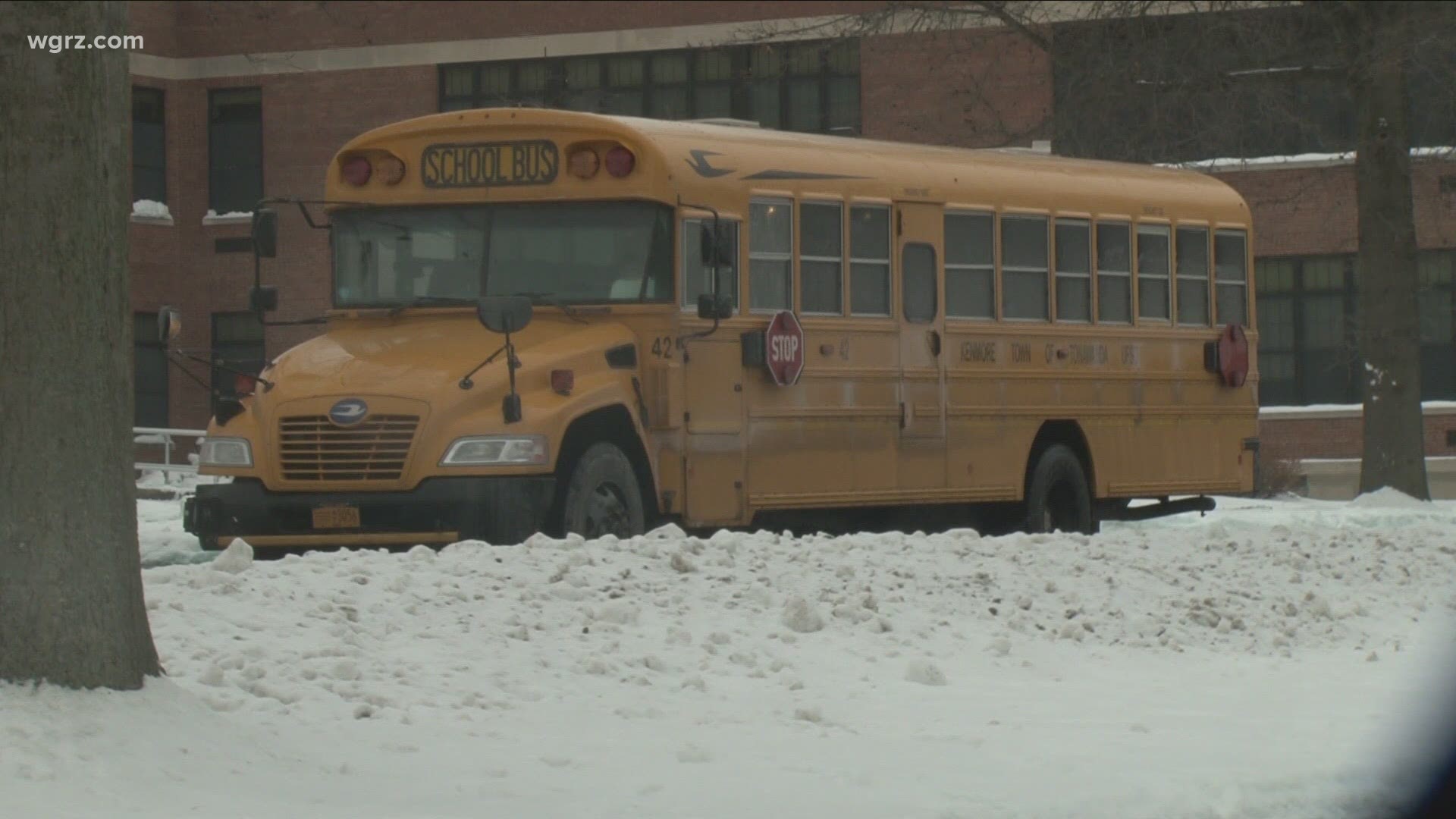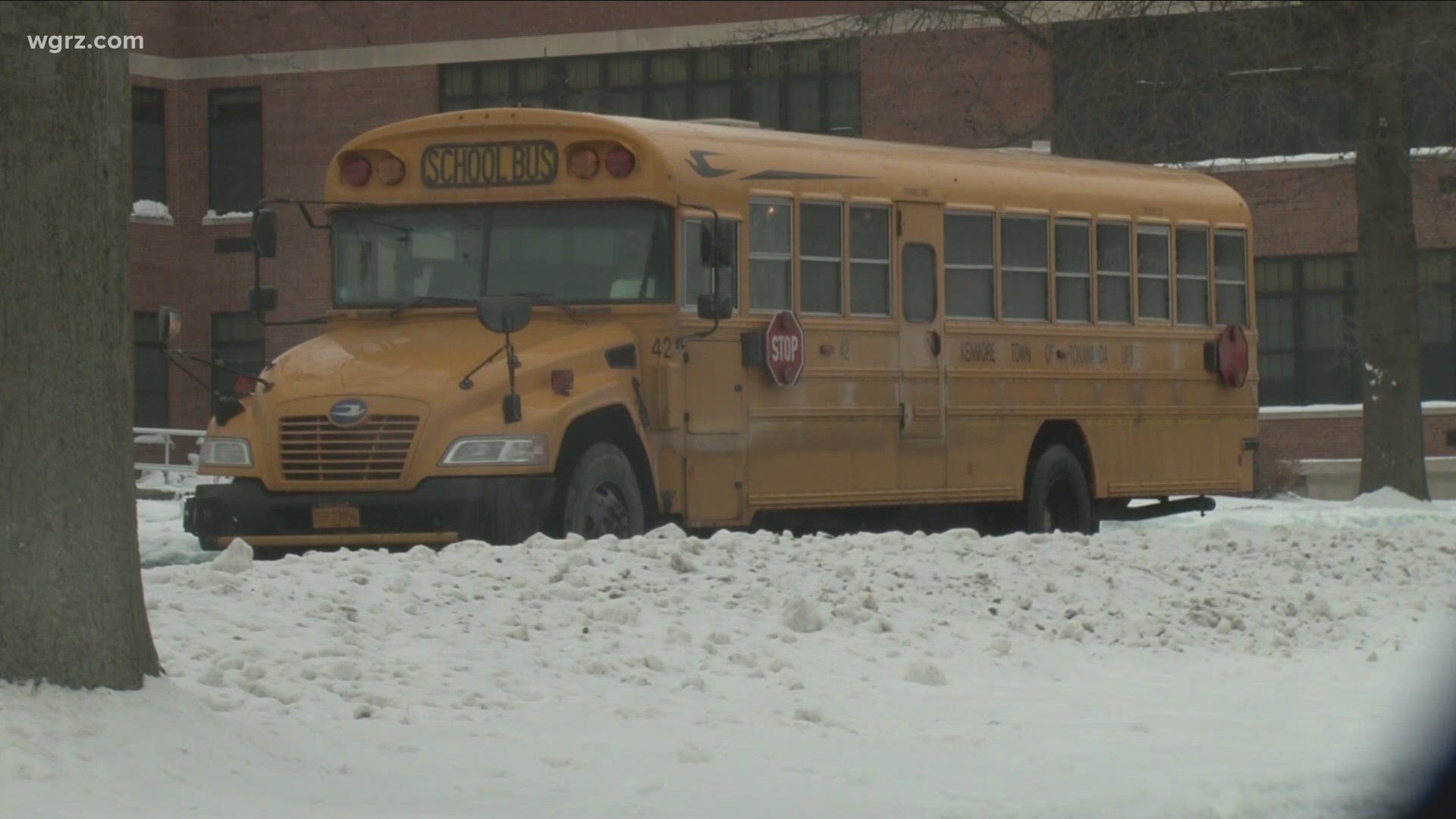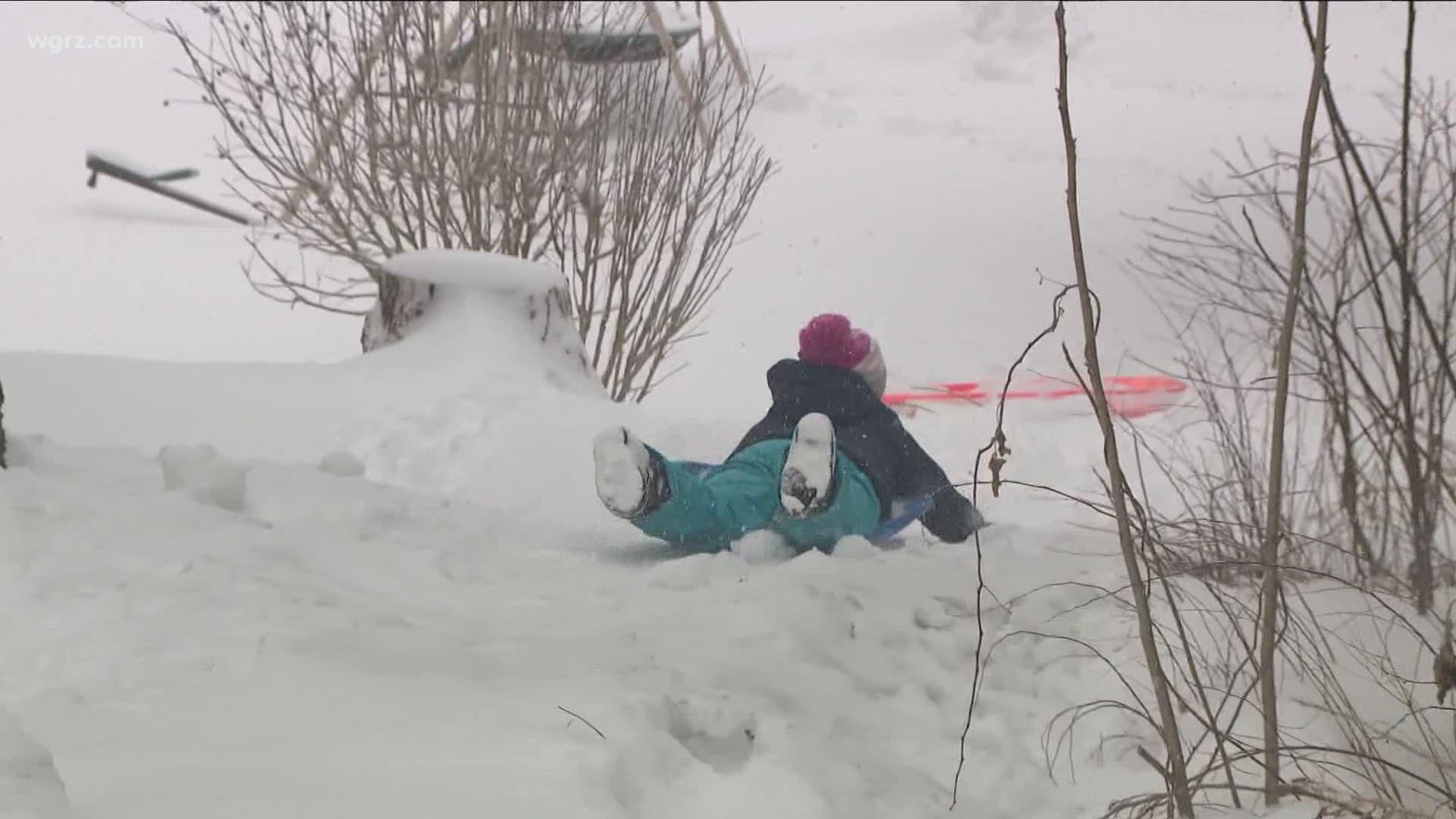BUFFALO, N.Y. — Some feel you could add snow days to the list of things that coronavirus may have stolen from some children.
Some school systems have said they intend to have kids continue to learn remotely during big snowstorms this year, robbing kids of those magical days when bad weather granted them an unexpected holiday.
Already the idea of cancelling school in bad weather has been under threat as districts have assigned students their own iPads and laptops that let them do lessons at home.
Now that the COVID pandemic has pushed the practice to a nationwide scale, the concept of snow days or really emergency days as they are officially known could be falling by the wayside.
Niagara Falls School Superintendent Mark Laurrie says his district has three days built in to the school calendar for various weather events like a major snow fall but also dangerous wind-chill or even power outages.
However, he agrees that just opting for a day off may not be appropriate with the challenging learning environment.
"I'm not trying to to take away the fun or the enjoyment of kids anticipating or working through a snow day but the reality is, especially during a pandemic, that we've got to make every minute count. We're gonna have kids behind at all levels in all school districts in all areas. So if we can maximize the use of technology and minimize the number of days in a regular 180 day calendar , which in many cases is too short to begin with, we're gonna rely more on virtual learning even during post pandemic times," Laurrie said.
Hamburg School Superintendent Michael Cornell has a somewhat different take. He says "the death of the snow day is somewhat exaggerated."
And he points other factors must be taken into consideration for a district just to go with all remote learning. For example, there's the private and parochial schools to factor in.
"Even though there's two feet of snow on the ground, if it's an instructional day, we're going to do it remotely for our kids who learn in district," Cornell said. "We also then have to transport our private, parochial and special education students who are in off campus placement."
Cornell also notes that the State Education Department actually has a pilot Snow Day policy in effect for the 20-21 school year. It gives districts some flexibility.
Cornell says, "The pilot is to see when districts decide to, instead of calling an emergency day, have it be an instructional day, what happens? What goes well? What doesn't go well? So that's all we know right now. And you know the state will look at the data that it collects and then they'll decide what the next steps they wanna take if any. But just because the state education department has a pilot program out, it doesn't mean that school districts would no longer be having emergency days."
Whatever the case, Laurrie says that with sufficient storm warnings from meteorologists, staff and students in the current hybrid program could be instructed to take their laptops or other digital equipment home to use if the actual school buildings were to close because of weather.
Laurrie also says teachers in his district are now better equipped to handle remote learning. He says over 200 teachers requested a particular upgrade.
"We have purchased a second monitor because we know that it's often very difficult on one computer monitor to manage a class of 20 to 25 kids," Laurrie said.
But Laurrie acknowledges that even on-line learning faces a unique challenge in the form of cyberattacks like the recently reported round of such tech assaults on federal agencies and businesses using Solarwinds Orion software.
As he puts it, "Cyberattacks may be the new snow days. Even if it was just to shut down one network or one program far away from here. Because many of the programs we use don't emanate out of Western New York."
That's in part why the New York State Education Department has section 2-d in education law. It requires school districts to protect privacy of students, families and staffers. But it also requires they be careful how they operate online, including their dealings with their third party vendors.
Cornell says, "There are lots of applications that our students and staff use that could provide a portal for some nefarious interests to gain entry into our network."



